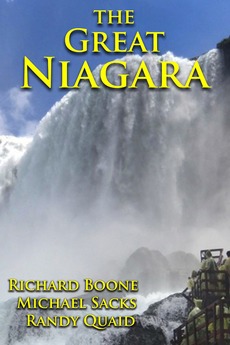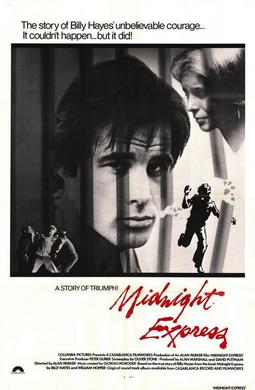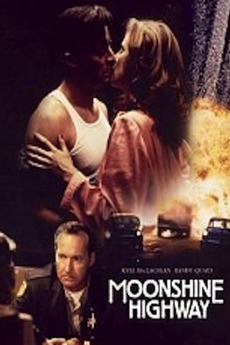Though the Academy of Motion Picture Arts and Sciences claim that the Oscars honor the best of the year, we all know that there are always worthy films and performances that end up getting overlooked. Sometimes, it’s because the competition too fierce. Sometimes, it’s because the film itself was too controversial. Often, it’s just a case of a film’s quality not being fully recognized until years after its initial released. This series of reviews takes a look at the films and performances that should have been nominated but were, for whatever reason, overlooked. These are the Unnominated.
First released in 1980, The Long Riders is one of the many films to tell the story of the James/Younger Gang.
A group of former Confederate guerillas who became some of the most notorious bank robbers to roam post-Civil War America and who were based in Missouri, the brothers who made up the James/Younger Gang were hunted by the Pinkertons and beloved by the citizens who viewed them as being 19th Century Robin Hoods. Following a disastrous attempt to rob a bank in Northfield, Minnesota, the Younger brothers were captured by the government while Jesse and Frank James made it back to Missouri. Jesse was shot in the back by Bob Ford while Frank subsequently surrendered to authorities and made a good living on the lecture circuit.
The Long Riders tells the story of the gang, from their first encounter with the heavy-handed Pinkertons to the Northfield raid to Frank’s eventual surrender. Director Walter Hill both celebrates the legend of the James/Younger Gang while also emphasizing that all the members of the gang were also individual humans who had their strengths and their flaws. Hill emphasizes the idea of the gang being a group of post-war rebels, still fighting a war against a government that is more interested in protecting banks than looking after people. The Long Riders deconstructs the legend while also celebrating it.
The main thing that sets The Long Riders apart from other films about the James/Younger Gang is the fact that the brothers are played by actual brothers. David, Keith, and Robert Carradine plays the Youngers. Randy Quaid plays Clell Miller while Dennis Quaid assumes the role of the cowardly Ed Miller. Nicholas and Christopher Guest make a memorably creepy impression as Charley and Bob Ford. And finally, Jesse and Frank James are played by James and Stacy Keach. (The Keaches also worked on the film’s script). And while Stacy is definitely the more charismatic of the Keach brothers, the film makes good use of James’s rather stoic screen presence. While the rest of the gang enjoys the outlaw life, James Keach’s Jesse is rigid, serious, and ultimately too stubborn and obsessive for his own good.
Now, the casting might sound like a gimmick but it works wonderfully. When Clell chooses the gang over Ed, it carries an emotional weight because we’re watching real brothers reject each other. The comradery between the Carradines carries over to the comradery between the Youngers and it also informs their occasional rivalry with the better known James brothers. While it is Stacy Keach and David Carradine who ultimately dominate the film, every brother in the cast makes a strong impression. Also giving a memorable performance is Pamela Reed as a defiantly independent Belle Starr, who loves David Carradine’s Cole Younger but marries Sam Starr (James Remar). The knife fight between Carradine and Remar is one of the film’s highlights, as is the violent and disastrous attempt to rob the bank in Northfield.
The Long Riders is an exciting and ultimately poignant western but sadly, it received not a single Oscar nomination, not even for the stunning cinematography or Ry Cooder’s elegiac score. Fortunately, just like the legend of the James/Younger Gang, The Long Riders lives on.
Previous entries in The Unnominated:







 In the backwoods of Hicksville, USA, two families are feuding. Laban Feather (Rod Steiger, bellowing even more than usual) and Pap Gutshall (Robert Ryan) were once friends but now they are committed rivals. They claim that the fight started when Pap bought land that once belonged to Laban but it actually goes back farther than that. Laban and Pap both have a handful of children, all of whom have names like Thrush and Zeb and Ludie and who are all as obsessed with the feud as their parents. When the Gutshall boys decide to pull a prank on the Feather boys, it leads to the Feathers kidnapping the innocent Roonie (Season Hubley) from a bus stop. They believe that Roonie is Lolly Madonna, the fictional fiancée of Ludie Gutshall (Kiel Martin). Zack Feather (Jeff Bridges), who comes the closest of any Feather to actually having common sense, is ordered to watch her while the two families prepare for all-out war. Zack and Roonie fall in love, though they do not know that another Feather brother has also fallen in love with Gutshall daughter. It all leads to death, destruction, and freeze frames.
In the backwoods of Hicksville, USA, two families are feuding. Laban Feather (Rod Steiger, bellowing even more than usual) and Pap Gutshall (Robert Ryan) were once friends but now they are committed rivals. They claim that the fight started when Pap bought land that once belonged to Laban but it actually goes back farther than that. Laban and Pap both have a handful of children, all of whom have names like Thrush and Zeb and Ludie and who are all as obsessed with the feud as their parents. When the Gutshall boys decide to pull a prank on the Feather boys, it leads to the Feathers kidnapping the innocent Roonie (Season Hubley) from a bus stop. They believe that Roonie is Lolly Madonna, the fictional fiancée of Ludie Gutshall (Kiel Martin). Zack Feather (Jeff Bridges), who comes the closest of any Feather to actually having common sense, is ordered to watch her while the two families prepare for all-out war. Zack and Roonie fall in love, though they do not know that another Feather brother has also fallen in love with Gutshall daughter. It all leads to death, destruction, and freeze frames. The time is the 1950s. The place is the backwoods of Tennessee. Everyone is obsessed with three things: cars, sex, and moonshine. Jud Muldoon (Kyle MacLachlan) served his country in World War II and now he just wants to make a living. He is the best moonshine runner in Appalachia. When he gets behind the wheel of a car, no one can outrun him. As long as he gets his cut, Sheriff Wendell Miller (Randy Quaid) has no problem with looking the other way when it comes to the moonshiners in his county. Or at least he doesn’t until the feds show up and start breathing down his neck about all the money they’re losing through non-taxed liquor sales. Complicating matters even more is that when Jud isn’t running moonshine, he’s sleeping with Ethel (Maria del Mar), who just happens to be married to the sheriff.
The time is the 1950s. The place is the backwoods of Tennessee. Everyone is obsessed with three things: cars, sex, and moonshine. Jud Muldoon (Kyle MacLachlan) served his country in World War II and now he just wants to make a living. He is the best moonshine runner in Appalachia. When he gets behind the wheel of a car, no one can outrun him. As long as he gets his cut, Sheriff Wendell Miller (Randy Quaid) has no problem with looking the other way when it comes to the moonshiners in his county. Or at least he doesn’t until the feds show up and start breathing down his neck about all the money they’re losing through non-taxed liquor sales. Complicating matters even more is that when Jud isn’t running moonshine, he’s sleeping with Ethel (Maria del Mar), who just happens to be married to the sheriff.